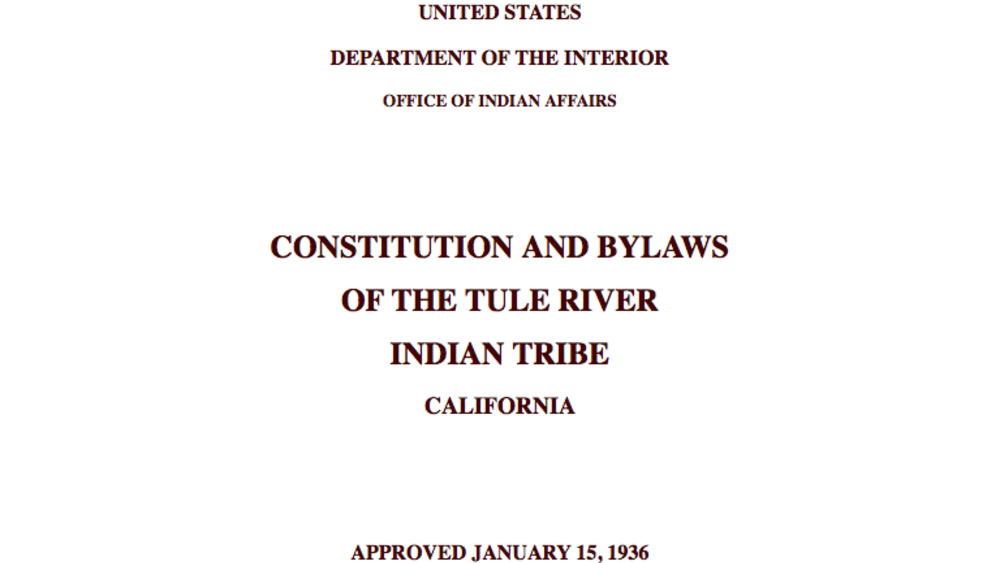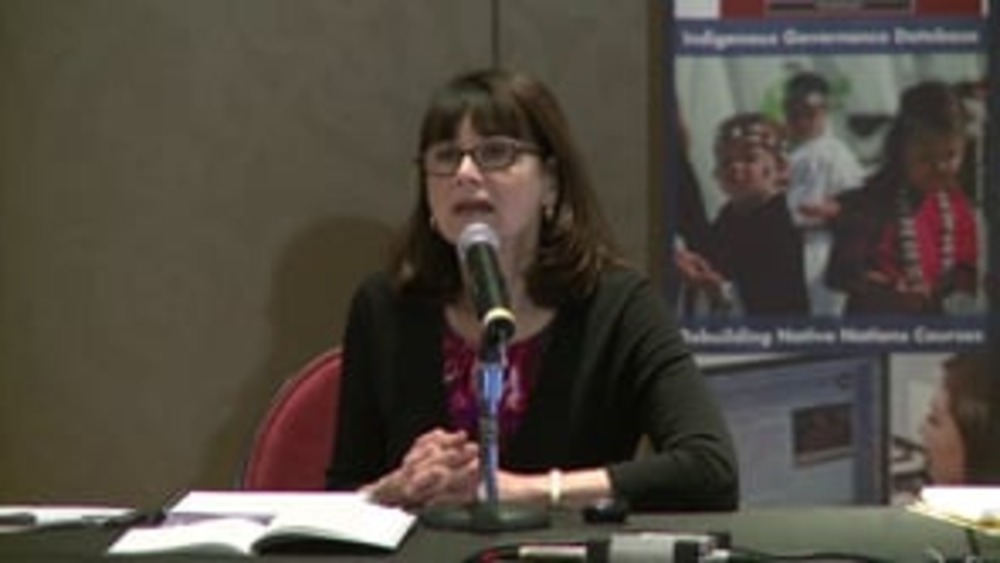Indigenous Governance Database
Tule River Indian Tribe
Image

Tule River Indian Tribe: Citizenship Excerpt
ARTICLE II-MEMBERSHIP SECTION 1. The membership of the Tule River Tribe shall consist of the following: (a) All persons of Indian blood whose names a pear on the official census rolls of the Tule River Indian Reservation as of January 1, 1935; (b) All children born to any member of the Tule…
Thumbnail

Carole Goldberg: Designing Tribal Citizenship
Scholar Carole Goldberg shares what she's learned about citizenship criteria from her extensive work with Native nations across the country, and sets forth the internal and external considerations that Native nations need to wrestle with in determining what their citizenship criteria should be.
